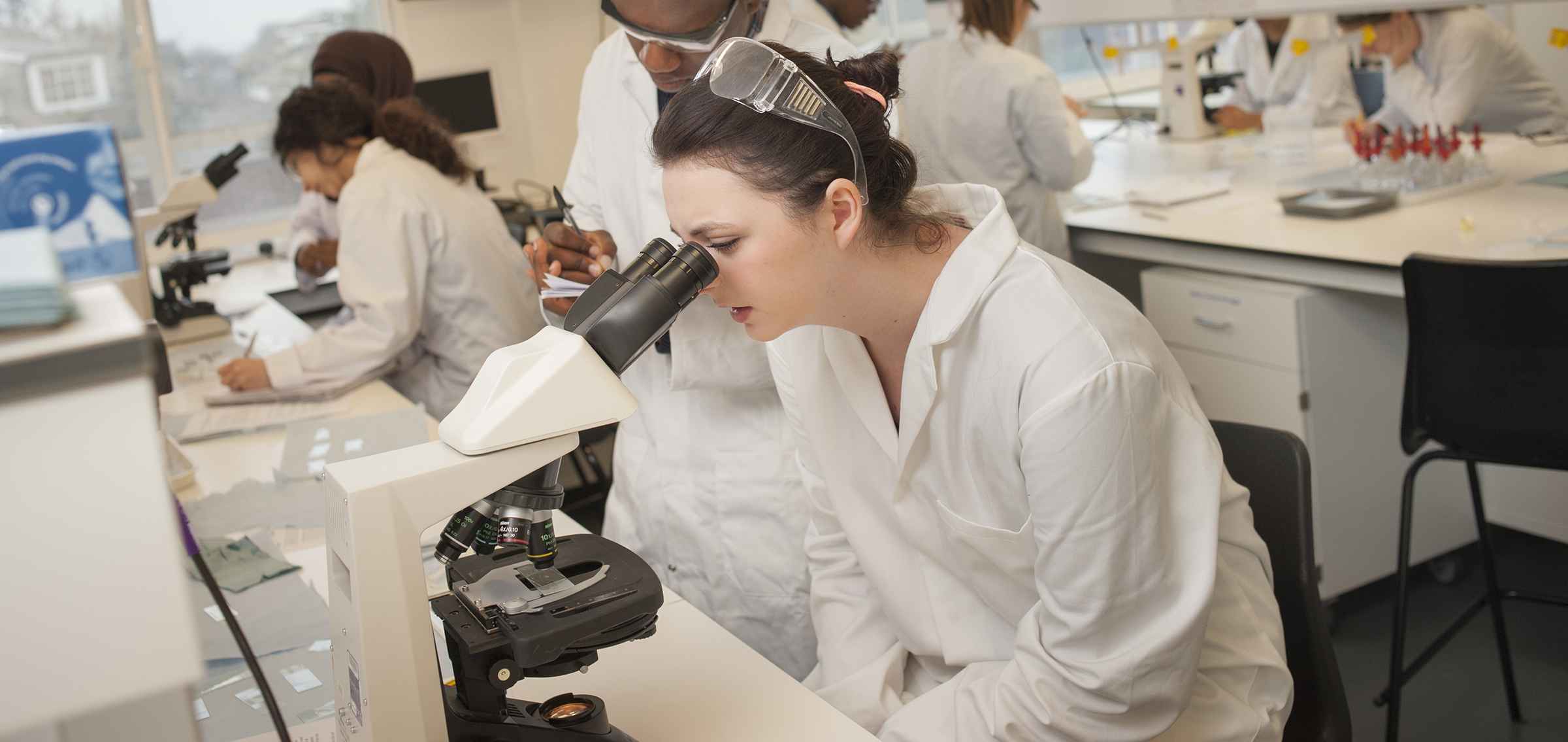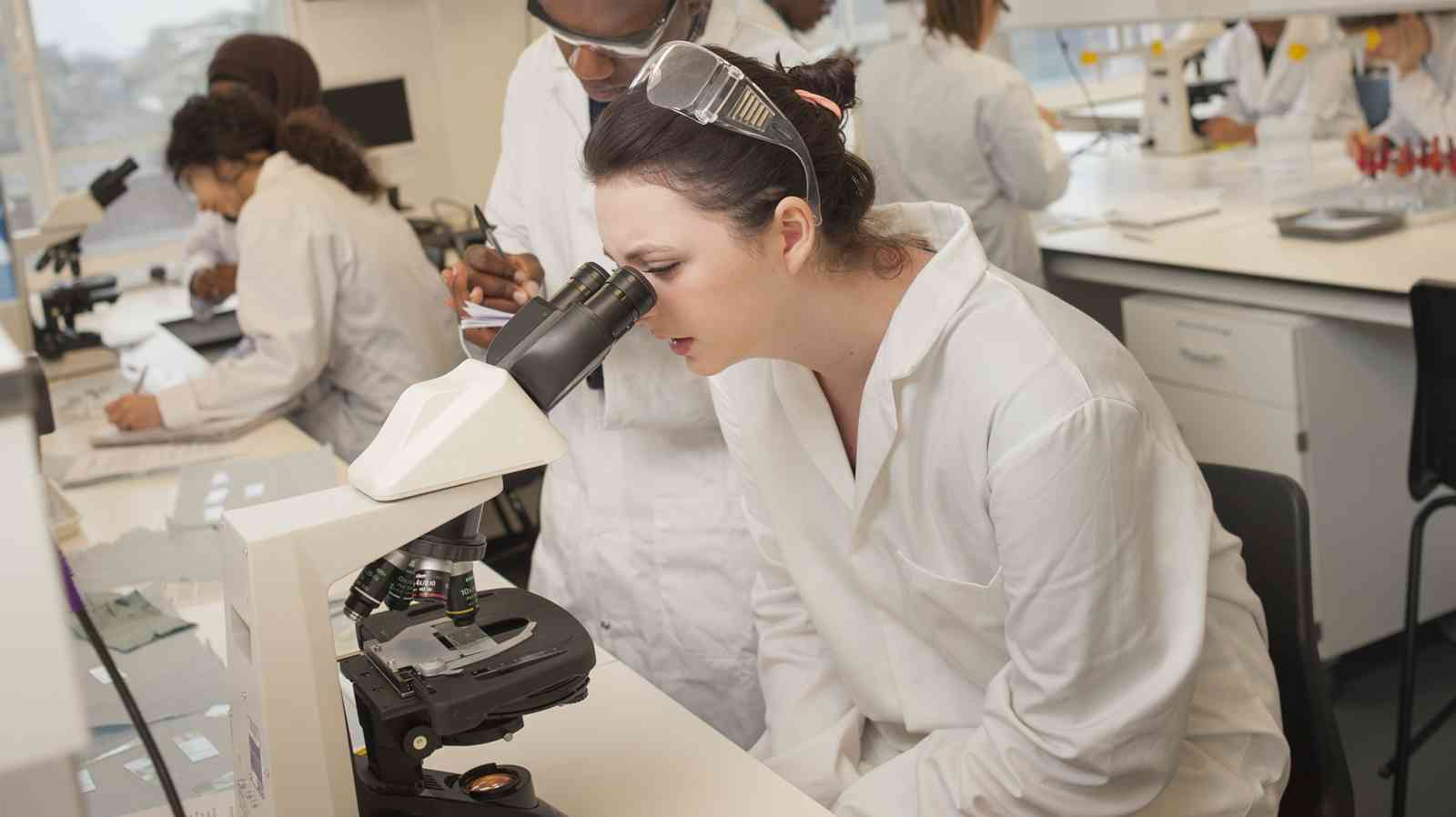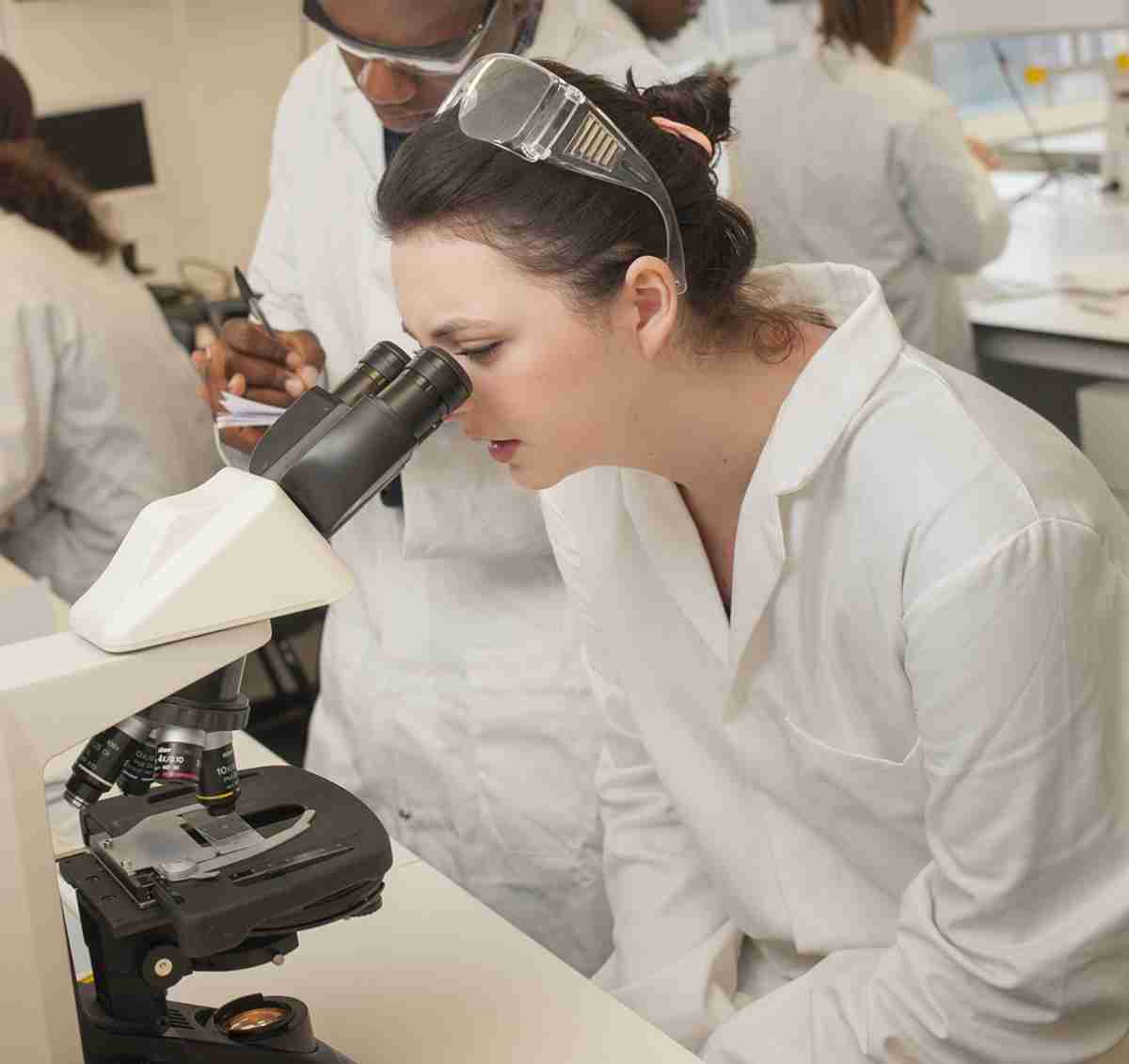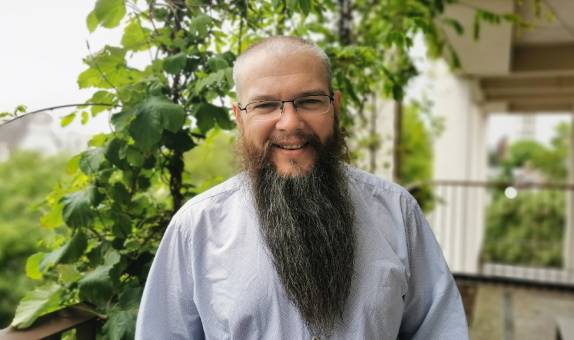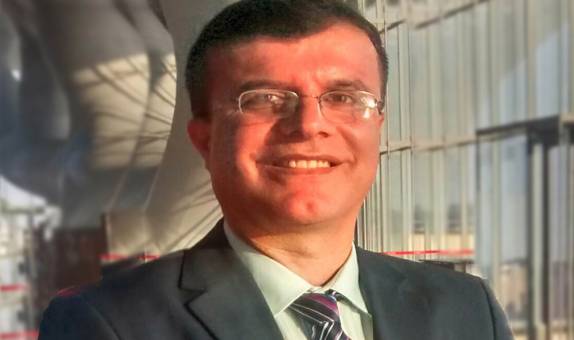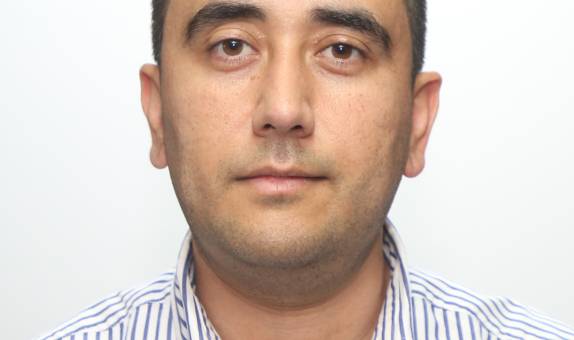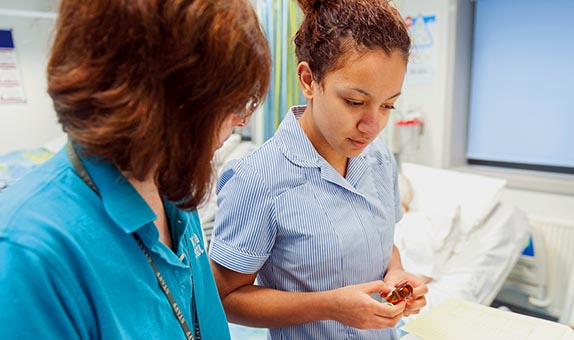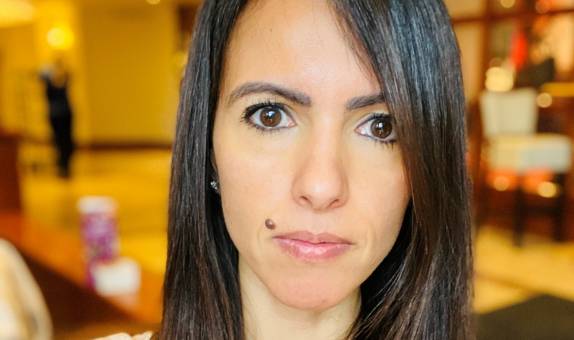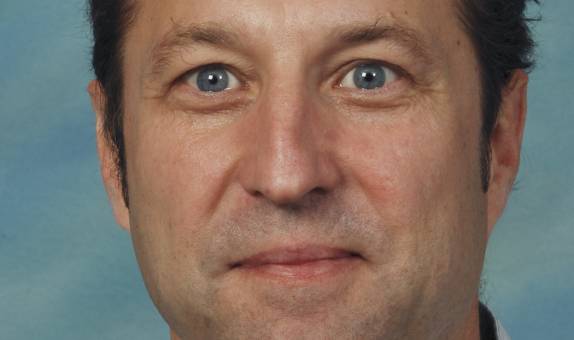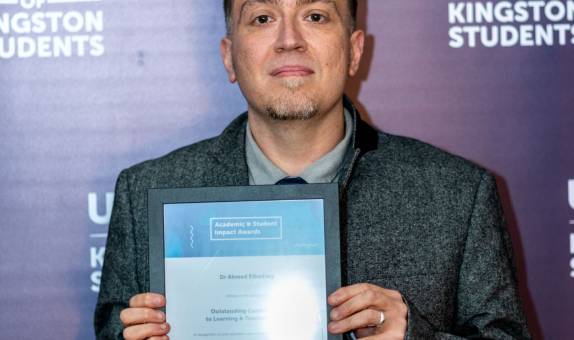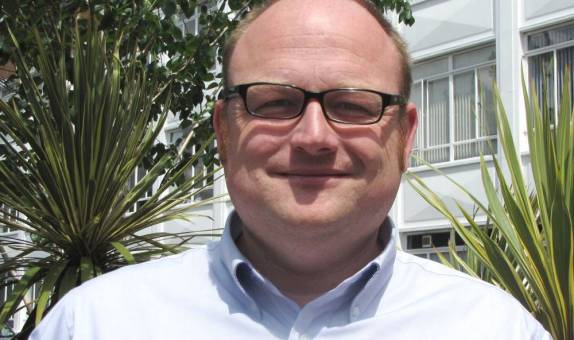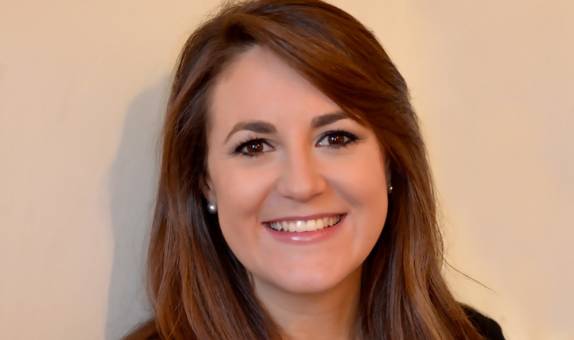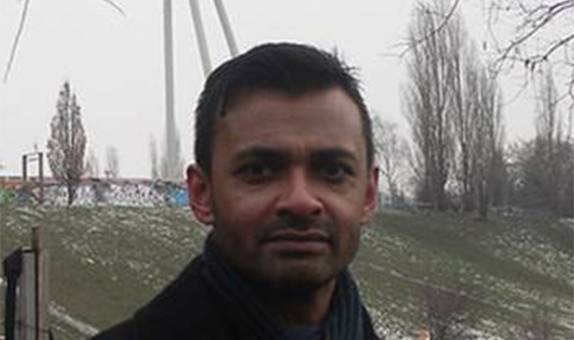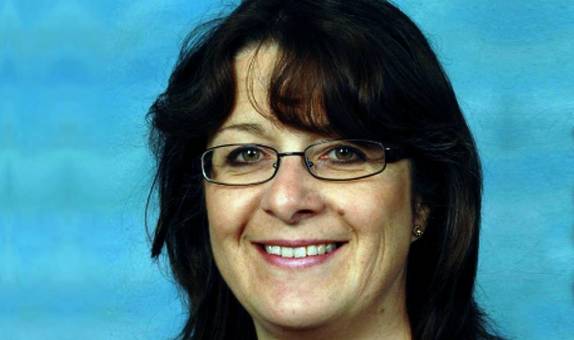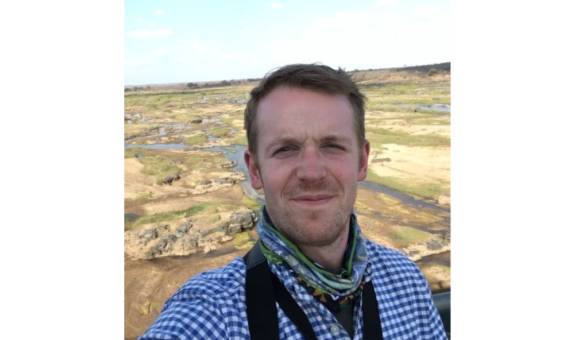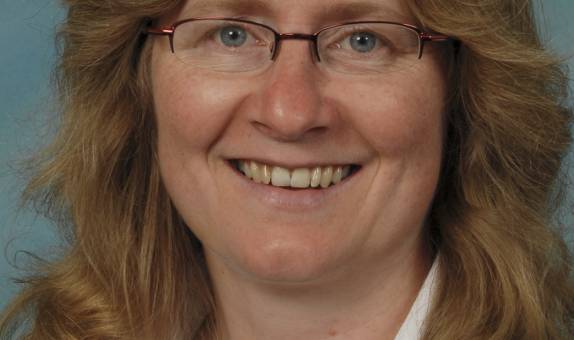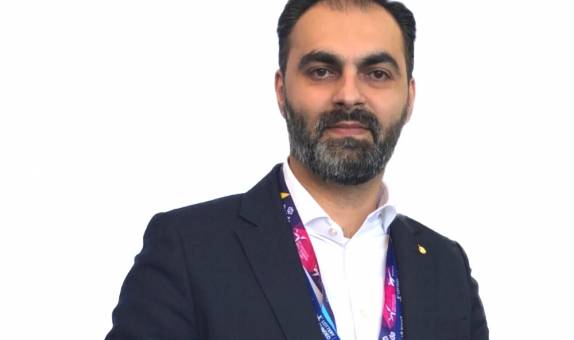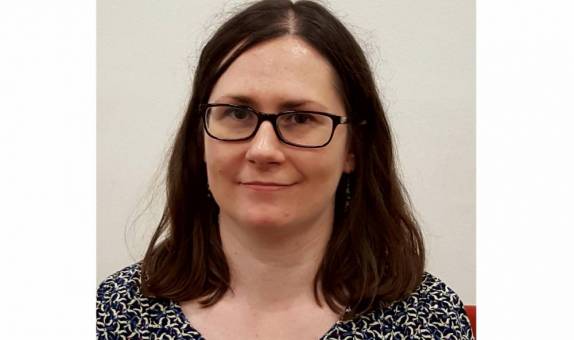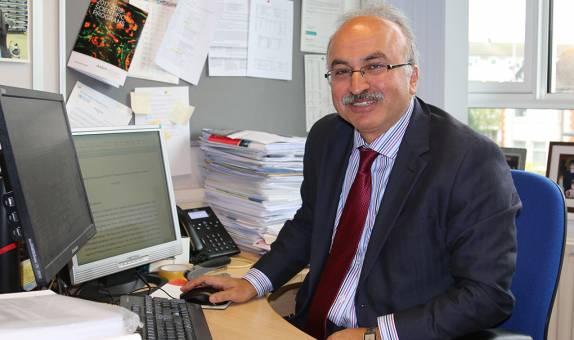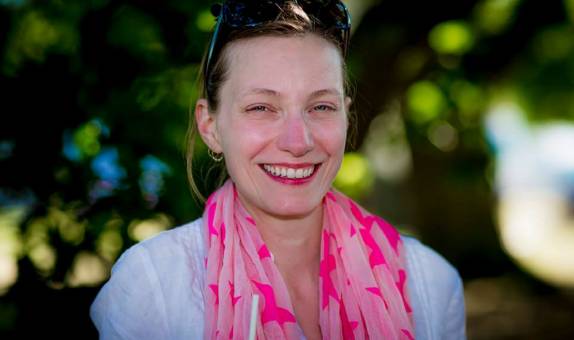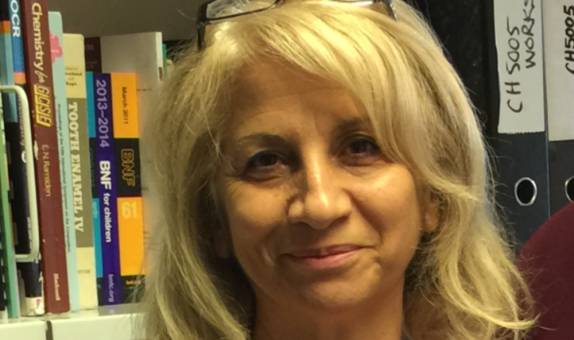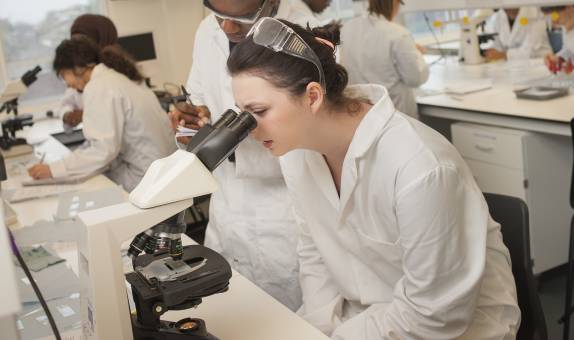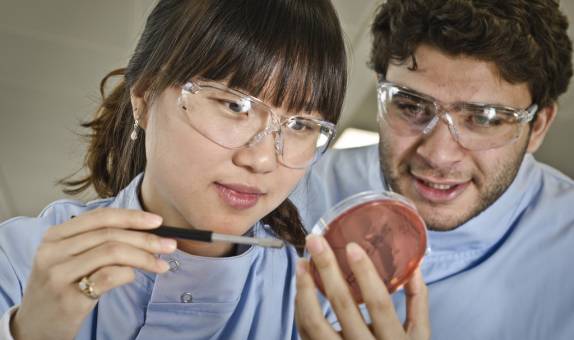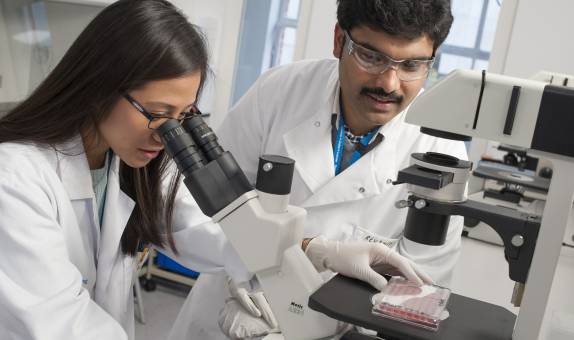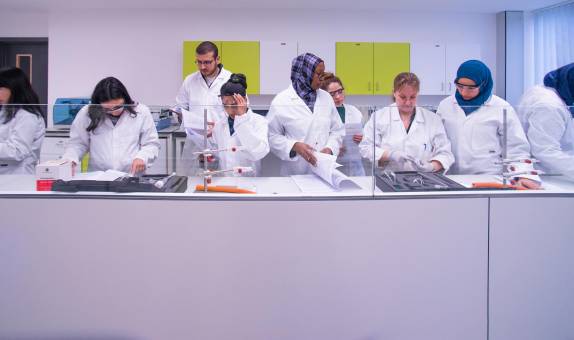Biomedical Science BSc (Hons)

Teaching Excellence Framework (TEF) Gold award
Our commitment to high quality teaching has been recognised with a TEF Gold rating. The University has received an overall rating of Gold, as well as securing a Gold award in the framework's two new student experience and student outcomes categories.
Why choose this course?
Biomedical Science is a course that covers a huge range of topics, such as cancer screening, diagnosing HIV, blood transfusion, the control of infections, immunology and conditions such as cancer and heart disease. It could be the ideal course for you if you enjoy laboratory investigation and the monitoring of diseases.
You'll be introduced to biological and chemical principles, molecular and cell biology, physiology, anatomy, biochemistry, and relevant laboratory techniques.
You'll also independently research a subject that interests you. This might include a laboratory-based project, analysis of survey information, or a review of scientific literature.
This course is currently being revalidated for 25/26 entry. We are reviewing our modules to enhance the student-centred learning experience. This includes updating course content to meet industry needs and ensuring you develop the skills needed to become a future-proof graduate.
| Attendance | UCAS code/apply | Year of entry |
|---|---|---|
| 3 years full time | B930 | 2024 (Clearing) 2025 |
| 4 years full time including sandwich year | B931 | 2024 (Clearing) 2025 |
| 4 years full time including foundation year | B948 | 2024 (Clearing) 2025 |
| 6 years part time | Apply direct to the University | 2024 (Clearing) 2025 |
Please note: Teaching on this course may take place on more than one KU campus.
| Main Location | Penrhyn Road |
Reasons to choose Kingston University
- This degree is currently being reaccredited by the Institute of Biomedical Science (IBMS). If you also complete the IBMS Training Portfolio, you can apply to register as a Biomedical Scientist with the Health and Care Professions Council (HCPC).
- You'll gain first-hand experience of a busy research or diagnostic laboratory.
- There is an opportunity to do a placement year in NHS laboratories, research institutes or drug companies.
- 96.2% of students thought staff were good at explaining things (NSS 2023).
What you will study
Year 1
Year 2
Year 3
Year 1 offers a firm foundation in the biological and chemical principles upon which biomedical science is based, including various laboratory techniques. You will be introduced to molecular and cell biology, physiology, anatomy and biochemistry.
Core modules
Genes, Cells and Tissues
30 credits
This module introduces you to basic cell biology of prokaryotes and eukaryotes, molecular, organismal and population genetics, germ layers and basic tissue types in the human body, and a variety of microorganisms. Core factual material is provided in keynote lectures and supported via material available via StudySpace. Laboratory practicals give you the opportunity to learn selected current techniques used to study cells, tissues, chromosomes and microbial organisms. The module provides an essential introduction to modules at levels 5 and 6 that develops further knowledge in cell biology, anatomy, physiology, genetics and microbiology.
The Biochemical Foundations of Life
30 credits
Learn how the building blocks of life work together to create complex molecules that sustain us. Explore the role of proteins, carbohydrates, and lipids in our bodies, and how they are broken down and used for energy.
Scientific and Laboratory Skills
30 credits
This first year module provides a firm foundation in general scientific and laboratory skills that students require to successfully complete their programmes of study. Students are introduced to the nature of studying in higher education, the need for effective time management and planning of work, the appropriate use of information sources, and to sources of information relating to careers in the biosciences. Scientific analytical and lab/practical skills are developed, together with essential mathematics and statistical skills for life scientists. A significant component of the module consists of the development of basic research skills such as practical skills in the laboratory, the principles of experimental design and the statistical analysis of data.
Human Physiology
30 credits
Understand how the human body works and how nutrition affects our health. Explore the fundamental physiological concepts behind topics such as homeostasis, cellular communication, and the movement of molecules through body compartments.
You will also cover the main physiological systems of the body, including the nervous, muscle, endocrine, respiratory, cardiovascular, renal, and of course, the digestive, systems.
Year 2 includes in-depth study of the more specialised aspects of biomedical science, particularly the nature and effects of human disease. You will develop your knowledge of microbiology and immunology and the cellular pathological changes that occur in medical conditions such as cancer and heart disease. You will learn about medical genetics, including a range of genetic diseases and disorders, and how to identify them.
Core modules
Infection and Immunity
30 credits
Discover how the human body fights infection. Learn about the different types of microorganisms that can cause disease and how our immune system works and protects us from disease. This knowledge will help prepare you for topics covered in more detail in your final year such as food microbiology, food allergy, and probiotics and to discuss the proposed role of specific nutrients, such as vitamin D, on the immune system (e.g., in respiratory disease and COVID-19).
Medical Genetics
15 credits
This module introduces you to the molecular and cellular basis of human diseases. This module covers basic concepts of inheritance patterns, population genetics and genetic disorders including single-gene disorders, chromosomal imbalances, epigenetics and complex disorders.
You will also be introduced to molecular genetics techniques, genetic testing and counselling, pharmacogenomics and personalised medicine. The module covers basic bioinformatic tools and computational techniques used in analysing large volumes of biological data that help in the identification of genetic variations and their influence on disease processes.
Additionally, you will learn about cutting-edge advancements in the field including gene therapy and editing, single-cell sequencing, and omics technologies. You will gain insight into how these technologies are shaping the future of medical genetics research and clinical practice.
Medical Physiology
15 credits
This module is designed to enhance your understanding of the recurring physiological themes in non-communicable diseases, relating physiological systems to common prevalent chronic diseases and likely mechanisms involved. Topics such as endocrinology and metabolic disease, neurophysiology, cardiovascular, reproductive, renal and respiratory physiology will be covered.
You will gain an insight into the clinical relevance of medical physiology and its direct application to patient care and medical practice through practical experience and interpreting results of essential clinical practice and research-based laboratory skills.
Pathobiology
30 credits
This module discusses cellular mechanisms of disease. In addition it considers the role of cellular pathology in the context of other pathology disciplines such as Clinical Pathology. Particular emphasis is given to laboratory aspects of cellular injury and their application in routine diagnosis. The module is delivered through lectures, tutorials, poster presentation, practicals and demonstrations. Core factual material is provided via Canvas with keynote lectures used to explain concepts. Teaching and practical session are supported by online pathology material.
Research Methods and Skills
15 credits
This is a core module for students studying Biochemistry, Biomedical Science, Biological Sciences and Pharmacology. The module aims to further develop your scientific, research and Future Skills that were introduced at level 4, and to relate the application of these skills to the broader discipline and beyond. The module provides you with the opportunity and encouragement to apply original and unconventional ideas, to be imaginative, and to tackle problem-solving using techniques that develop individual and group creativity.
Problem-solving will be exemplified using design thinking and the scientific method. These are supported by the development of core research skills such as locating and evaluating relevant scientific literature, enhancement of scientific writing skills, and managing, analysing and presenting data, using software such as Excel and R. You will also learn to demonstrate awareness of the impact of your discipline on ethical, sustainable, and societal issues along with being able to communicate your outputs and findings.
Overall, this module will develop your Future Skills through engagement with Explore, support your problem-solving/critical thinking skills, and prepare them for their final year capstone project. This is supported by tutor meetings enabling you to work on tasks to evidence, develop, articulate, and reflect on your progress and graduate attributes.
Year 3 consists of specialist modules covering the theoretical and practical aspects of the major branches of biomedical science. These include clinical chemistry and haematology, clinical immunology and medical microbiology. The Clinical Applications of Biomedical Science module includes clinical case studies, integrating diagnostic procedures from across the course and developing awareness of contemporary issues within biomedical science.
Year 3 also includes a research project. This may be undertaken in University research laboratories or in a hospital or medical research laboratory. It enables you to carry out independent research in a subject that interests you, and gain first-hand experience of a busy research or diagnostic laboratory. The project could also be data analysis of survey information or a systematic review of scientific literature.
Core modules
Clinical Applications of Biomedical Sciences
30 credits
This module will integrate the knowledge gained from all your other modules on the Biomedical Science course. Case studies will be used to provide an overview of biomedical techniques and, more importantly, their applications in clinical diagnosis, prognosis and patient management, including drug interactions and the basis of individual variation in drug responsiveness. You will use pertinent clinical cases to encourage you to think 'outside the box' and realise that when dealing with a real patient, knowledge gained from seemingly unrelated modules is required simultaneously in order to make a rational diagnosis.
The module will cover/review the following techniques and discuss their application in common diseases and clinical scenarios: immunoassay development and evaluation, infectious disease diagnosis and microbial identification, molecular and genetic approaches to disease diagnosis, biochemical analyses and histopathological examination of tissues.
Project (Bioscience)
30 credits
You will complete your own independent research project, with the guidance of an academic supervisor. There are several types of projects you can choose from, such as a laboratory or field-based project, data projects involving acquisition of data and information from surveys, questionnaires, computer simulations or bioinformatics, or a systematic review of research literature that includes the collection, comparison and original presentation of reported research data.
You will review and critically evaluate qualitative and quantitative data to predict and answer a research question, and produce a written report.
Clinical Chemistry and Haematology (Blood Sciences)
30 credits
This module evaluates the contribution of laboratory investigations to the diagnosis, treatment and prevention of disease in key areas such as renal disease, diabetes, anaemia, and haematological malignancies. The module also considers the role of the transfusion laboratory in the treatment of selected disorders.
Throughout the module, case histories are used to illustrate current best practice in Clinical Chemistry and Haematology, and this is reinforced by keynote lectures from expert practitioners in the field. The module also places an emphasis on students' acquisition of the knowledge and practical skills required by employers.
Topics are introduced through a structured lecture series and further explored in practical laboratory sessions. Additional material is provided via Canvas, with tutorials used to support the practical programme and strengthen understanding of key concepts.
Clinical Immunology and Medical Microbiology
30 credits
This module builds on, and applies, the learning achieved in the Level 5 Infection and Immunity (LS5008) module which is a prerequisite.
The module initially explores in detail diseases of: overactive immunity (e.g. autoimmune disease and hypersensitivity); and of immune deficiency (e.g. AIDS). It also explores other key areas of clinical immunology such as cancer immunology, monoclonal antibodies and laboratory diagnostics.
You will then explore infectious diseases and the principles and practise of the medical microbiology. Selected infectious diseases and their laboratory diagnosis are studied in depth using an organ system approach; for example, infections of the respiratory tract, gastrointestinal tract, and urinary tract.
Please note
Optional modules only run if there is enough demand. If we have an insufficient number of students interested in an optional module, that module will not be offered for this course.
Foundation year
If you would like to study one of our science degrees at Kingston University but are not yet ready to join the first year of a BSc (Hons) course, you can include an extra foundation year within your chosen degree. Please see the science foundation year course page for details of modules.
Future Skills
Knowledge to give you the edge
Embedded within every course curriculum and throughout the whole Kingston experience, Future Skills will play a role in shaping you to become a future-proof graduate, providing you with the skills most valued by employers such as problem-solving, digital competency, and adaptability.
As you progress through your degree, you'll learn to navigate, explore and apply these graduate skills, learning to demonstrate and articulate to employers how future skills give you the edge.
At Kingston University, we're not just keeping up with change, we're creating it.

Entry requirements
If you would like to join us through Clearing 2024, please call our Clearing line on 0800 0483 334 (or +44 020 8328 1149 if you are calling from outside the UK) and speak to our friendly and knowledgeable hotliners who will be able to provide information on available courses and will guide you through your options.
Please note the entry requirements listed below are for 2025 entry only.
Teaching and assessment
Scheduled learning and teaching on this course includes timetabled activities including lectures, seminars and small group tutorials.
It may also include placements, project work, practical sessions, workshops, conferences and field trips.
Who teaches this course?
This course is delivered by the School of Life Sciences, Pharmacy and Chemistry.
The School of Life Sciences, Pharmacy and Chemistry offers an outstanding and diverse portfolio of undergraduate and postgraduate programmes in biological and biomedical sciences, chemistry, forensic science, pharmacy, pharmacological and pharmaceutical sciences, and sport science and nutrition.
We've invested heavily in the development of new facilities including laboratories for teaching and research to provide students with access to ultra-modern equipment in a wide range of teaching facilities.
Postgraduate students may run or assist in lab sessions and may also contribute to the teaching of seminars under the supervision of the module leader.
Facilities
There is a wide range of facilities for practical work at our Penrhyn Road campus, where this course is based. You will have access to a modern environment with the latest equipment, including:
- the £9.8 million Eadweard Muybridge building with state-of the art laboratories;
- an exercise physiology and biomechanics lab;
- modern applied biology and chemistry laboratories
- specialist equipment, such as electron microscopes and spectrometers;
- computing laboratories and a team of IT technicians to offer assistance; and
- a newly refurbished state-of-the-art nutrition kitchen.
The Library offers:
- subject libraries, plus a free inter-library loan scheme to other libraries in the Greater London area;
- online database subscriptions; and
- a growing selection of resource material.
Course fees and funding
Additional costs
Depending on the programme of study, there may be extra costs that are not covered by tuition fees which students will need to consider when planning their studies. Tuition fees cover the cost of your teaching, assessment and operating University facilities such as the library, access to shared IT equipment and other support services. Accommodation and living costs are not included in our fees.
Where a course has additional expenses, we make every effort to highlight them. These may include optional field trips, materials (e.g. art, design, engineering), security checks such as DBS, uniforms, specialist clothing or professional memberships.
Accreditation
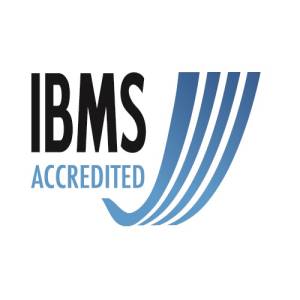
We are currently renewing our Institute of Biomedical Science (IBMS) accreditation for 2024 entry. It is not approved by The Health and Care Professions Council (HCPC) for Registration. However, when put together with completion of the IBMS's Registration Training Portfolio, it does provide eligibility to apply for HCPC Registration as a Biomedical Scientist. The IBMS Training Portfolio can potentially be completed during the placement year of the four-year sandwich course (B931); however the majority of students undertake this after graduation, once in appropriate employment.
What our students say
After you graduate
Careers and progression
This degree provides excellent preparation for careers in science, health and education, and postgraduate studies such as medical and research degrees.
What our graduates say
Work placement year
How you can work in industry during your course
Placements:
- provide work experience that is relevant to your course and future career
- improve your chances of graduating with a higher-grade degree
- enhance your CV
- lead to a graduate job
- enable you to earn a year's salary whilst studying (the vast majority of placements are paid)
- help you to select your final-year project.
There is a lot of support available for students looking to secure a placement (e.g. a jobs board with placement vacancies, help with writing CVs and mock interviews). Getting a placement and passing the placement year are ultimately the student's responsibility.
This course provides the opportunity to do an industrial placement. Here are some examples of employers:
- GSK
- NHS Laboratories
- Pfizer
- UK Health and Security Agency
Find out about studying this course part-time
The part-time course is half the workload of the full-time course, taking six years to complete rather than three. The course is flexible so you can switch to full-time study in Years 2 or 3 if you wish.
Before the course begins, you will meet with a tutor to discuss your time commitments. The course leaders will then try to let you know the timetable of lectures and seminar groups as soon as possible. On average, part-time students need to allow 10 hours a week to attend lectures and seminars, plus a further 10 to 15 hours for independent study, but this does vary.
Key information set
The scrolling banner(s) below display some key factual data about this course (including different course combinations or delivery modes of this course where relevant).
Course changes and regulations
The information on this page reflects the currently intended course structure and module details. To improve your student experience and the quality of your degree, we may review and change the material information of this course. Course changes explained.
Programme Specifications for the course are published ahead of each academic year.
Regulations governing this course can be found on our website.
